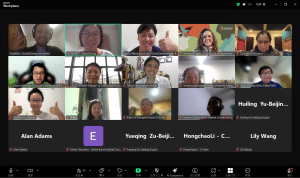Deng Guosheng, Director of the School of Public Policy and Management of Tsinghua University, says that while social innovation has received a lot of attention over the past two years, few organizations are actually effective at addressing social problems. Deng lists the following three foreign trends in social innovation in order to highlight ways in which Chinese organizations are lacking.
In China, many believe that the goals and practices of philanthropy and business should not mix, but this is not the case abroad. The first trend is that rather than relying on donations, many philanthropic organizations now operate as self-sustaining businesses. For example India’s Aravind Eye Care charges its wealthy patients more so that it can cover patients who otherwise would not be able to afford care. Thus, the organization has a continual source of funding, the potential to expand, and can help more poor patients.
The second trend is that of business expansion. Taiwan’s Children Are Us Bakery & Lunch Box has stores in over 30 locations and has an annual profit of NT$500 million, all while providing work opportunities to the mentally disabled.
The third trend is strategic use of social media and mobile technologies, which few Chinese organizations harness to their full potential. Medic Mobile’s use of cell phones is changing the way the medical sector serves its patients, benefiting many in Africa, Asia, and Latin America, as well as the poor in the United States.
Finally, Deng discusses a new model of philanthropy: social impact bonds. Following Scope, an organization that serves the disabled, and the first to issue social impact bonds in British history, the City of New York has partnered with investment banking firm Goldman Sachs to issue bonds for MDRC, which runs programs to rehabilitate incarcerated youth. In this model, the government invests with a private company and gives the returns to social organizations—a mutually beneficial arrangement in many ways.



